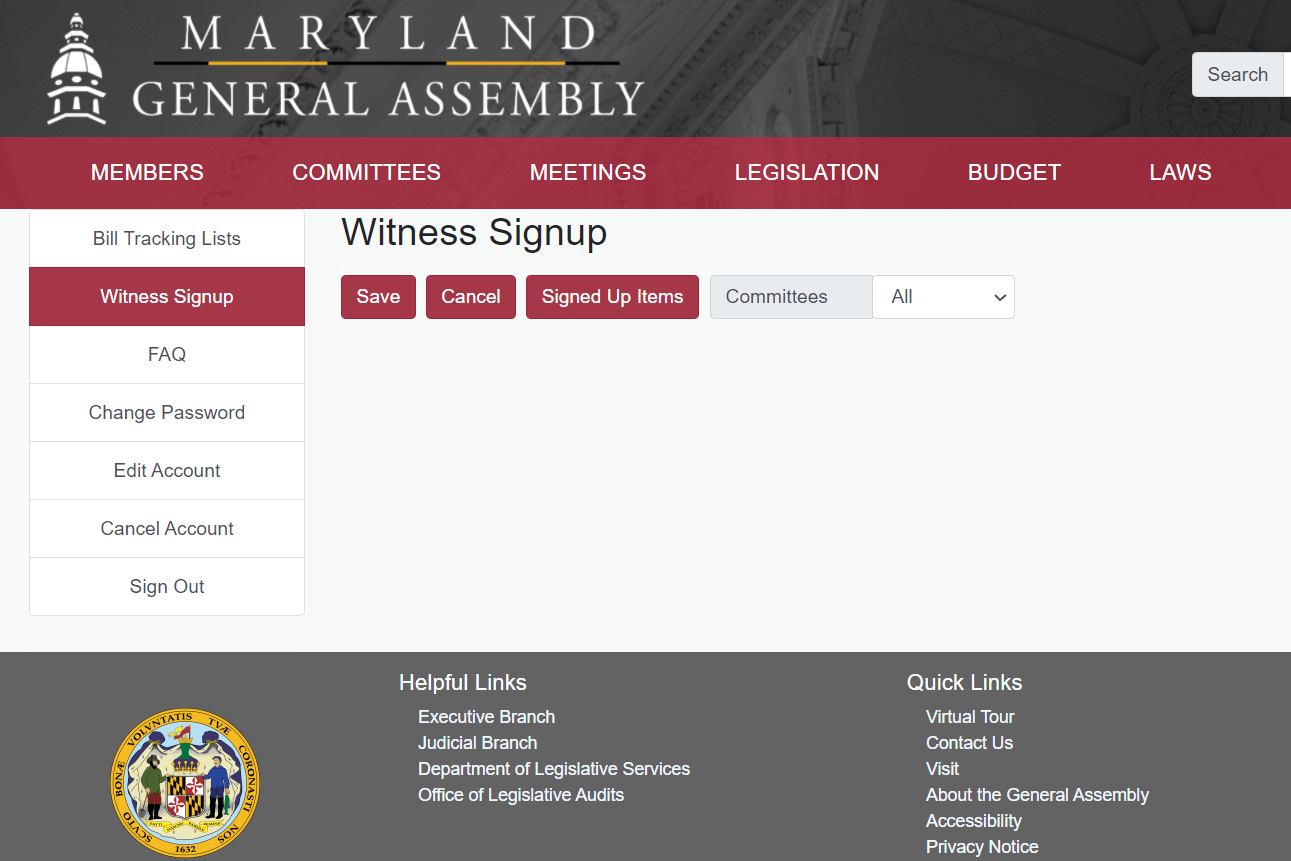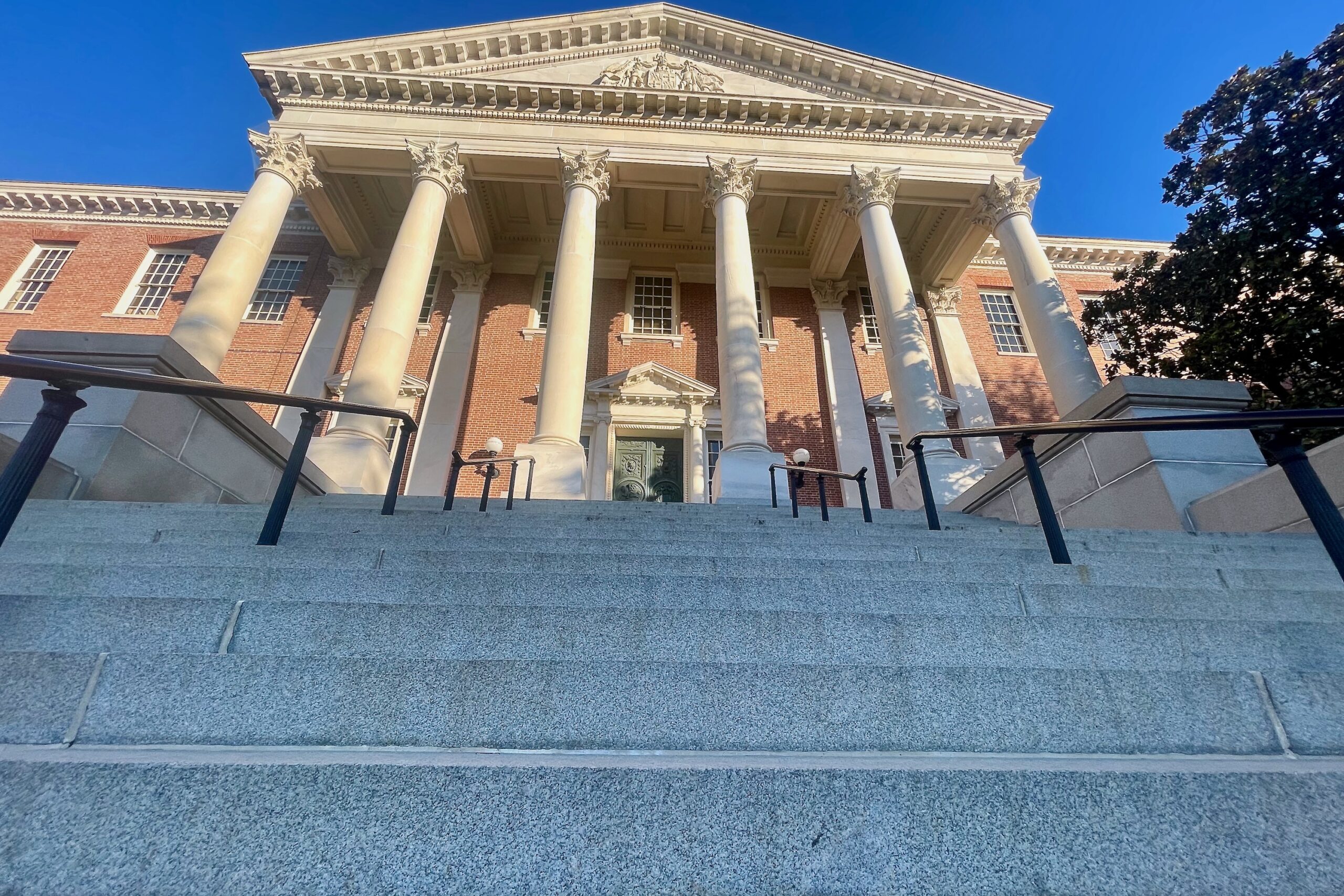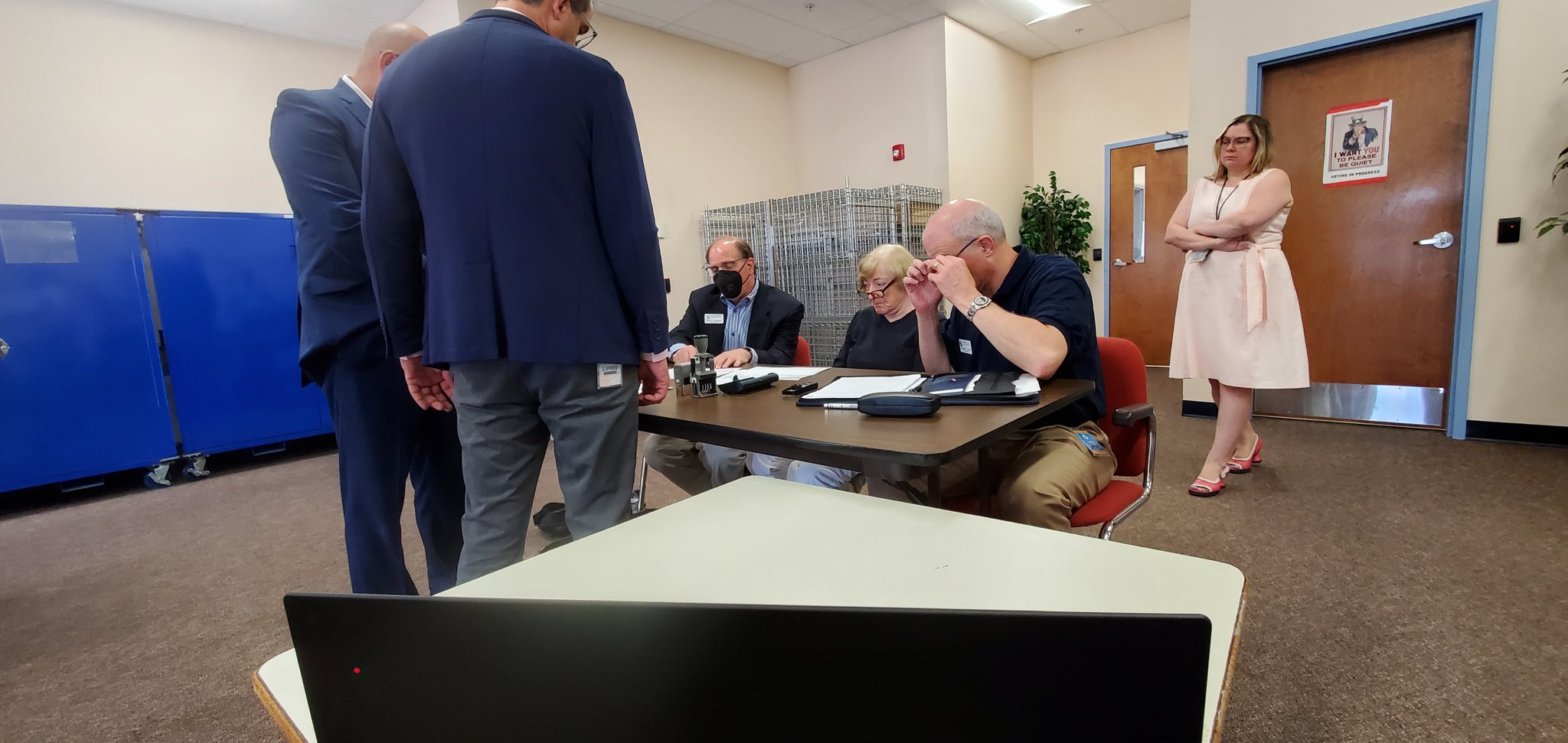Some Struggle with New Bill Testimony System in Maryland

By Audrey Decker
Signing up to speak at a bill hearing or file written testimony on pending legislation got harder — and for some, maybe impossible — after the coronavirus pandemic shifted how the Maryland General Assembly accepts witness testimonies.
In previous years, people could trek to Annapolis the morning of a bill hearing and sign up to testify. If they needed assistance in the process, lobbyists could do it for them.
While a new online system makes it accessible for people who couldn’t previously go to Annapolis in person, it has its own set of challenges.
If someone wants to sign up to testify, in either the House or Senate, they have to sign up 48 business hours before the hearing date, between the hours of 8 a.m. and 3 p.m., on the Maryland General Assembly website. Until Monday, sign up times began at 10 a.m.
This time frame is challenging for people who work during the day or for voters with disabilities, said Joanne Antoine, executive director of Common Cause Maryland.
“It really just isn’t that simple for people who aren’t doing this on a day-to-day,” Antoine said.
For instance, if a voter is blind and they have to join a meeting at home, and their Zoom account is not identical to their sign-up name, they won’t be let into the electronic hearing room, Antoine said.
Not only do people have a small window to sign up, oral testimony is now limited in the Senate and the House.
The Senate caps oral testimonies at four in favor, four in opposition and two favorable with amendments. Out of the four chosen on the affirmative side, three are selected by the sponsor, with one selected at random, limiting the number of people who are able to have their voices heard in the process, Antoine said.
The House allows for up to 50 witnesses during a hearing, but that varies by committee.
There is no limit on the number of people who can submit written testimony. However, advocates said, written testimony isn’t as effective as oral testimony because there’s no way to address what someone else said in the hearing.
The General Assembly really “missed the mark” for an opportunity to make public participation more accessible, especially during a pandemic where people’s voices are needed more than ever, said Cathryn Paul, research and policy analyst at CASA.
“The people who are least represented in the General Assembly right now are people of color… (and) low-income folks who don’t have access to the digital tools that they need, and generally, are the marginalized communities who are being left out,” Paul said in an interview with Capital News Service.
Immigrants face many barriers. A majority of CASA members do not have an email address, so even the first step in this process of filing testimonies is an issue, Paul said.
With multiple immigration-related bills being introduced this session, it’s concerning that a majority of the General Assembly’s rules for testimony aren’t in Spanish or any other language, Paul said.
The General Assembly has made sure that members of the staff are committed to working through these problems as quickly as they come up, said Jeremy Baker, senior adviser to the Maryland House of Delegates.
“There’s going to be barriers to any solution during this pandemic,” Baker said.
The new system of filing testimonies is keeping people safe, Baker said, and the General Assembly is pleased that they can still work in a way where people can see the process virtually.
Paul recommended that the General Assembly instructional videos on their website be available in languages other than English as soon as possible.
The process for accessing written testimony submitted by others has changed as well. Before the pandemic, anyone could come to a committee’s office in Annapolis and ask for a copy of the bill file.
Now, digital files of written testimony for standing committees are made available through the General Assembly website only once the bill has been voted out of the committee and moved on to the chamber floor for the second time — called “second reader.”
To request it before then, anyone can call the committee and ask for a copy of the bill file, Baker said.




 Creative Commons Attribution
Creative Commons Attribution